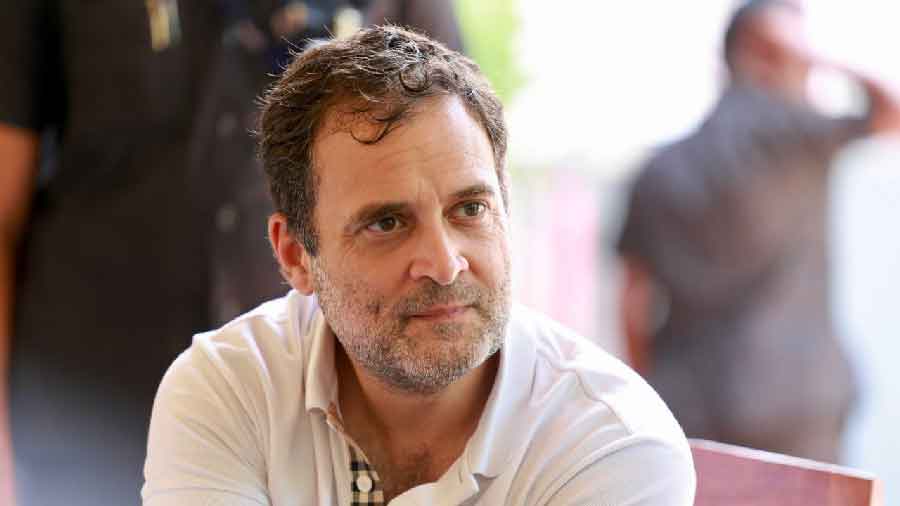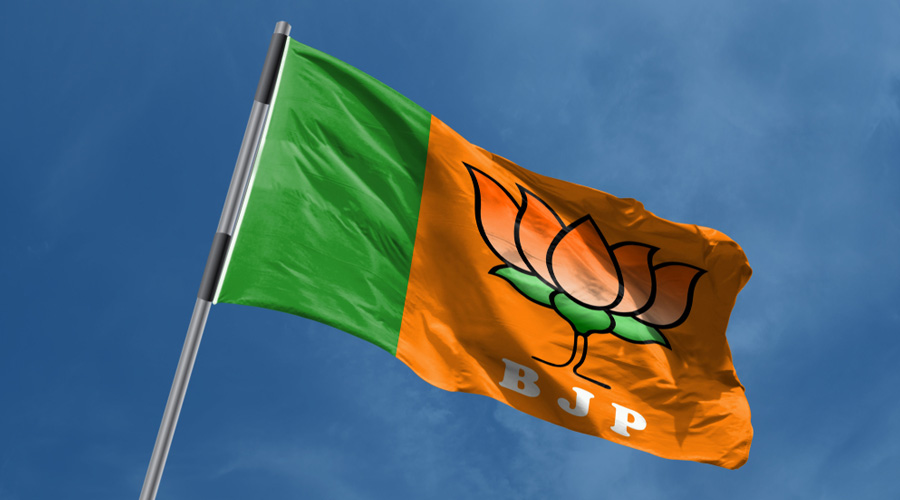The Gujarat Congress expects its campaign to peak at the right time with Rahul Gandhi’s visit to the state on Monday, dismissing perceptions about the party’s inability to pose a formidable challenge to the BJP, which has been ruling the state for 27 years.
Most Congress leaders from Gujarat believe the BJP’s plight is far worse than it was in 2017 and the results will bear testimony to the ground reality even as the central leaders privately concede there is nothing exciting for the party this time.
“The media has never given us a chance in Gujarat. But the truth is that we opted for a quiet mass-contact programme and booth management in place of big-bang rallies. Most of our candidates are going to fight fiercely,” a senior leader told The Telegraph over phone from Ahmedabad.
While the local Congress leaders have already covered the entire state through different yatras, Rahul will address two public meetings in Surat and Rajkot on Monday, giving the badly needed impetus for the party in the perception war.
While the BJP has relied solely on Prime Minister Narendra Modi and home minister Amit Shah to lift its campaign, the Congress has asked its leaders to focus on micro-management this time.
Gujarat leaders believe Rahul’s campaign, though restricted, will make a huge difference because he comes with the force of the Bharat Jodo Yatra, which has completely changed his image.
His tours of two important cities, Surat and Rajkot, will help the party counter the perception that the Congress is not taking the contest seriously. Rahul’s meeting in tribal area Dahod just before the start of the Yatra had attracted a massive crowd.
He is expected to visit the place again in the first week of December, just before the polling for the final round, even as the state leaders are demanding one more day in between.
In 2017, Rahul had led a forceful campaign that succeeded in restricting the BJP to 99 seats against its boastful target of 150. While leaders in Delhi grudge Rahul’s obsession with the Yatra and fear a disaster in Gujarat, the local leaders insist they would be proved wrong as the “mahaul” (political ambience) was better this time.
“The media has created two perceptions — one, the Aam Aadmi Party has emerged as the main contender; and two, the Congress has vanished. Both are fallacious. While the AAP is still not a force to reckon with and is in the fray only to help the BJP as many seats are decided here by small margins, we are the real challengers,” Congress’s chief spokesperson in the state, Mansh Doshi, said.
In the 2017 Gujarat elections, the Congress had polled 41.44 per cent votes against the BJP’s 49.05 per cent.
This time, however, most opinion polls have suggested that the AAP would slice away around 15 per cent votes from the Congress.
That doubtless will ensure a comfortable BJP victory but there is also a different kind of feedback from the ground indicating a two-way impact of the AAP in many constituencies.
“While AAP has no presence in rural areas, it is cutting both ways in urban seats,” said a Congress leader while claiming that AAP vote-share cannot cross 5 per cent.
Delhi chief minister Arvind Kejriwal, who along with his Punjab counterpart Bhagwant Mann, has been intensely campaigning in Gujarat, has predicted rout for the Congress, saying they won’t get more than 4-5 seats.
If that happens, the status of the Congress as the main Opposition party will take a huge beating.
Such an outcome will impact the politics in other key states such as Madhya Pradesh and Rajasthan, which will go to polls late next year.












